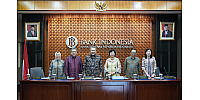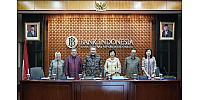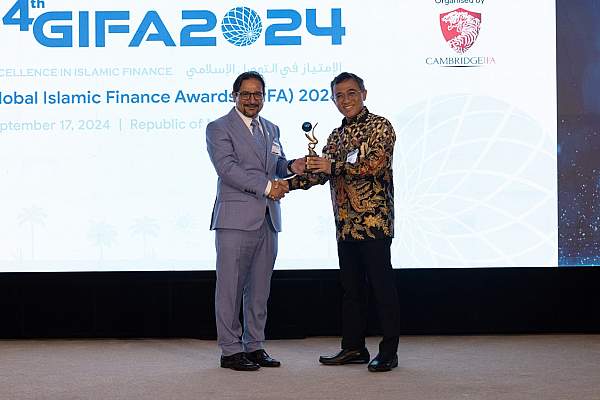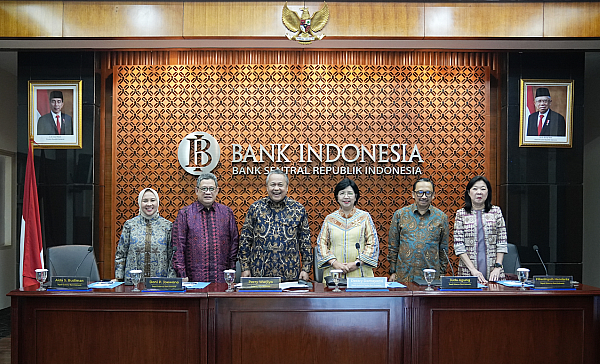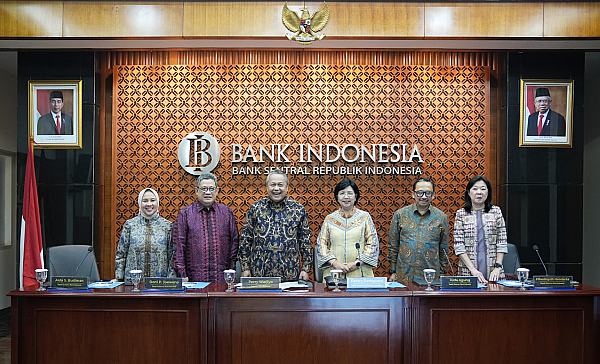Government Reviews Residential Development on Railways, Rivers and Roads
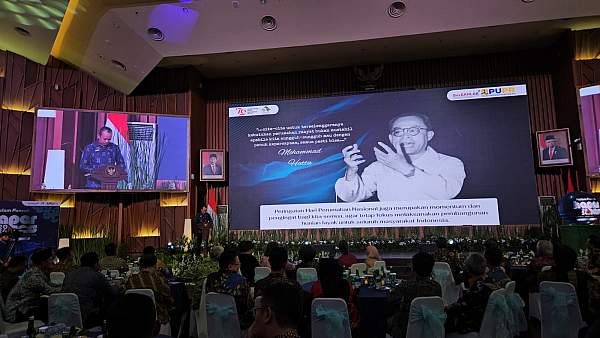
The provision of housing in the future will face increasing challenges, as the urban population continues to grow, driven by global developments and information and communication technology (ICT) that are disrupting all aspects of society.
Global developments and ICT are fueling urbanization. By 2045, for example, when Indonesia celebrates its 100th year of independence, an estimated 72.8% of the population is expected to live in urban areas.
This large population size poses complex challenges for government policies in providing adequate housing, given the limited land availability in urban areas.
This was stated by the Director General of Housing at the Ministry of Public Works and Public Housing (PUPR), Iwan Suprijanto, during the peak event of National Housing Day (Hapernas) 2024 with the theme "Housing Digitalization" in Jakarta on Tuesday (27/8/2024).
Hapernas 2024 was filled with a series of activities, ranging from tree planting, pilgrimage to Bung Hatta's grave, to a Property Technology (Proptech) Convention and Expo, Fun Run and Fun Walk, as well as webinars and casual chats about housing.
Key stakeholders present at the Hapernas 2024 peak event included the PUPR Minister Basuki Hadimuljono, former housing ministers, developers and Perumnas, bankers, and senior officials from the PUPR Ministry and other ministries/agencies.
According to Iwan, there are currently still 9.9 million households that do not have their own homes. This housing backlog has the potential to continue increasing, as the growth of new households reaches 700-800 thousand per year.
On the other hand, until 2023, as many as 36.85% or 26.92 million households have not occupied decent housing, whether in the form of their own homes or not.
"In fact, our target this year is for 70% of households to occupy decent housing, in line with the commitment in the 2020-2024 RPJMN (National Medium-Term Development Plan) in the Housing and Settlement sector," said Iwan, as quoted from the written statement from the Legal and Public Relations Section of the Directorate General of Housing received last weekend.
The next challenge is the unavailability of by-name by-address (BNBA) data regarding housing backlog and uninhabitable houses (RTLH).
Other challenges include the provision of land, financing, access to basic infrastructure, occupancy issues, information data management for accurate targeting of programs, technological and construction industry support, as well as governance to improve accountability.
"Therefore, the transformation to housing digitalization must become a priority policy for the future, integrated with programs and activities (housing procurement) that adopt digital solutions," said Iwan.
With digitalization, the government can conduct more comprehensive geospatial data mapping, regarding the condition and distribution of RTLH and more accurate and accountable housing backlogs.
In addition, digitalization also encourages all stakeholders to improve the efficiency of housing administration, support easier access through synergistic digital platforms that encompass the housing business process, and accommodate innovative and brilliant ideas in housing provision.
Iwan explained that innovative and brilliant ideas are also highly needed in future housing provision, especially to address the challenge of limited land in urban areas.
"The government is exploring innovations related to the utilization of space above roads, railways, and rivers for housing. Of course, this idea requires studies and technology to ensure it does not interfere with the transportation system (and river flow)," Iwan said.
Furthermore, in an effort to facilitate easier housing development permits, the PUPR Ministry is also preparing a prototype design for simple residential houses that accommodate earthquake-resistant and green building principles.
Meanwhile, in an event in Jakarta on Saturday (31/8/2024), the Head of the Housing Task Force of the Prabowo-Gibran Transition Team, Hashim Djojohadikusumo, as quoted by viva.co.id, stated that the Prabowo-Gibran administration will build apartments on 153 markets owned by PD Pasar Jaya in Jakarta.
The apartments, which he said would reach 193 towers, will be combined with markets that will occupy the first 1-3 floors. This idea, which he said is not new, emerged to address the limited land for housing in urban areas.
Related post:
Foreign capital pouring in, Rupiah continues to strengthen
IDR 5.9 trillion in funds for infrastructure and housing in the Papua Special Region
August 2024 Manufacturing Industry Performance Declines
Government Releases New Private Infrastructure Financing Scheme, 4 Become Pilot Projects


